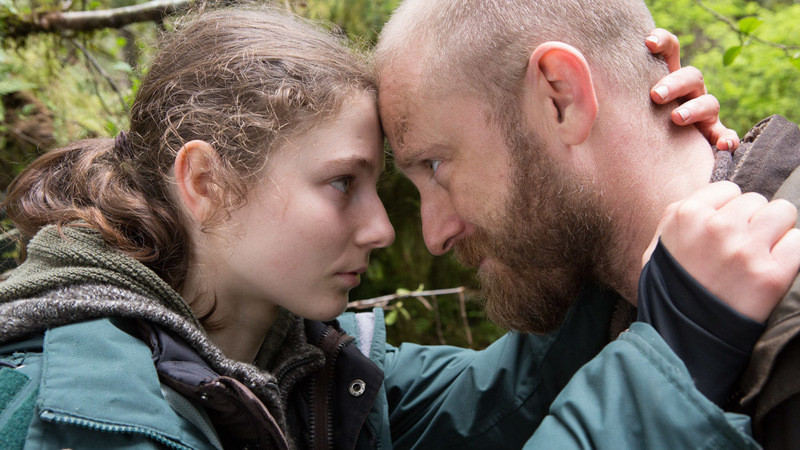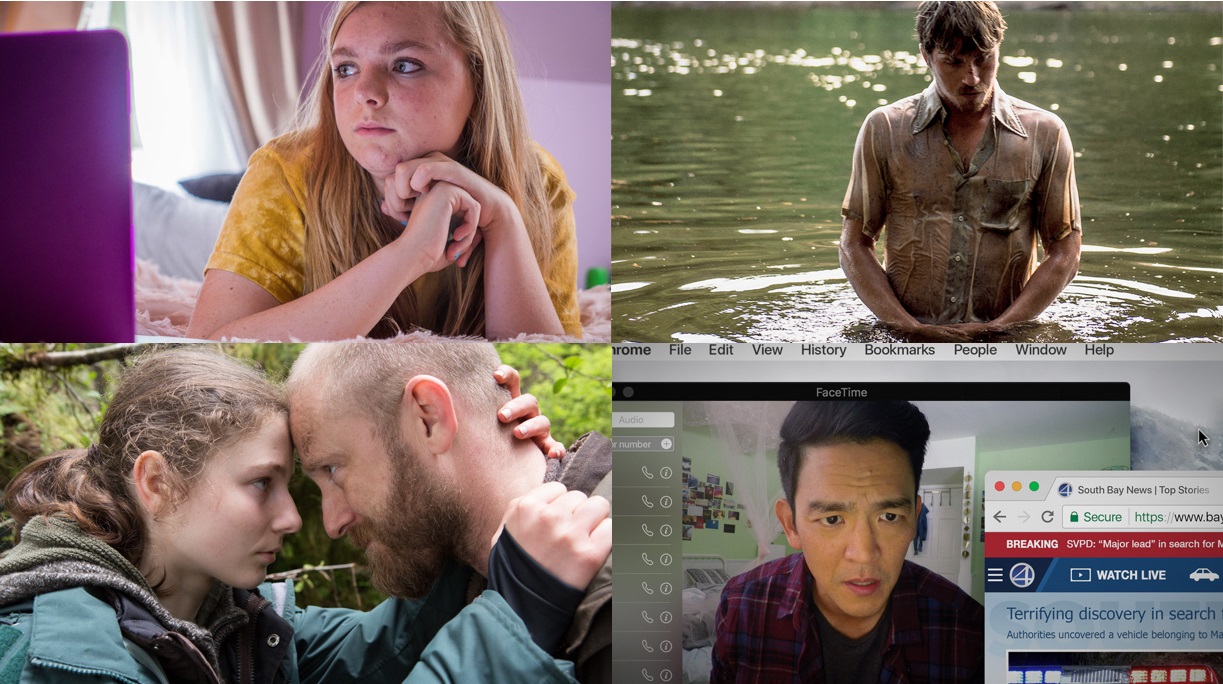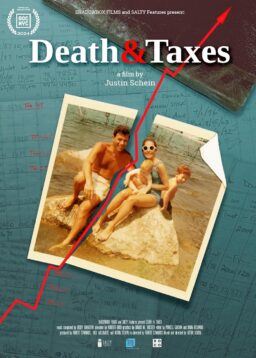What do Timothée Chalamet, Casey Affleck, Mary J. Blige, Patricia Arquette, Ethan Hawke, and Saoirse Ronan have in common? They are all recent Oscar nominees for performances that launched in Park City at the Sundance Film Festival. This year’s festival was widely considered to be a less fruitful crop than the one that bloomed in 2017 but everyone agreed that there was still a wide array of wonderful acting turns, from faces old and new. We asked our Sundance staff to pick their favorites. Will we still be talking about these a year from now? We think we will.
Vivian Bang in “White Rabbit”
It’s rare for a performer to establish such unmistakable charisma as fast as Vivian Bang does in her Sundance film, “White Rabbit.” She is completely fascinating in her first scene, performing a dramatic monologue about immigration while standing inside a corporate grocery store, and just as curious in the next, silently mashing her face into a pile of cheese curls while filming herself with an iPhone. Bang is clearly an artist of the fearless breed, but the plot that follows in “White Rabbit” allows her to use that boldness for a full dramatic range, whether portraying the hardship of freelance jobs or the ebb and flows of romantic relationships. In one of the most immediate star-making performances you could see at Sundance, Bang gives a unique power to her indie vehicle, while proving she is more than ready for larger projects. (NA)
Kayli Carter in “Private Life”
During “Private Life,” Tamara Jenkins’ deeply empathetic dramedy about a 40-something couple’s battle with fertility, you will either want to care for the young college dropout Sadie (played by Kayli Carter), or to become her best friend, depending on your age. Perhaps even both. As Sadie chooses to crash with her “art parents” (Kathryn Hahn and Paul Giamatti) instead of her actual parents while figuring out her next life move and agrees, in a lovely scene, to donate her eggs to help the desperate couple, we watch her soul grow richer and older on screen in the midst of an unconventional, makeshift New York family. It’s such an open, free and truthful performance that teeters on emotional extremes that you will feel sorry to lose the pleasure of her company by the end of the film. (TL)

John Cho in “Search”
Too many projects have come by that somehow didn’t make John Cho a mega-star: “Star Trek,” Sundance indie “Columbus,” even the excellent romantic comedy series “Selfie.” Cho gets another opportunity to display his dramatic prowess and endless charisma with “Search,” the thriller from Aneesh Chaganty that shows only what happens on computer screens, as Cho’s father figure searches for his missing daughter. Cho is equal turns heartbreaking and funny in this wildly entertaining Sundance treasure, and while he is accompanied visually by an intricate world of social media and iMessage chat windows, it’s his show. Cho displays a keen energy and emotion with the simple act of pretending like he’s on a computer, no small feat for even the best actors. (NA)
Toni Collette in “Hereditary”
With echoes of her heartfelt, Oscar-nominated performance from M. Night Shyamalan’s “The Sixth Sense,” the always-great Toni Collette does her best work in years as the matriarch of the Graham family in Ari Aster’s Midnight hit. Collette has to ride a rollercoaster of emotions that culminates in some of the most physically fearless work of her career. Her Annie Graham is both hero and villain, victim and perpetrator, and Collette throws herself into every complex aspect of the role. It’s the kind of performance that’s rarely recognized by awards-giving bodies due to its genre. But it should be. (BT)
Peter Dinklage in “I Think We’re Alone Now”
In Reed Morano’s gorgeous post-apocalyptic movie, Peter Dinklage plays a grumpy loner who gets to live out a “Twilight Zone”-like fantasy of having all the time in the world to read in his empty town’s library. Just as he’s settling in and dutifully cleaning up the bodies leftover by an unnamed zombie virus, his domestic calm is interrupted by a brash 20-something-year-old stranger (Elle Fanning). Although his character remains guarded, Dinklage infuses his performance with a vulnerability that’s both somber and sympathetic. There’s regret in his thousand-yard stare. Unlike his talkative companion, Dinklage’s character never reveals much about his background. His eyes tell the audience everything they need to know. (MC)

Elsie Fisher in “Eighth Grade”
If middle school is hell, then the eighth grade is the purgatory before the next level of Dante’s Inferno, high school. In Bo Burnham’s “Eighth Grade,” we can take a not-so-nostalgic step back into those awkward years through the modern-day experience of a painfully shy outsider played by Elsie Fisher. As Kayla, Fisher guides us through the frightening halls and classrooms of her middle school during the last few days of her eighth grade year—and all of the fears, regrets and hopes that come with graduation. In any other movie, Fisher might have played an awkward supporting character, but here she leads the film with an impressive depth, revealing the secret life of an insecure teenager who longs to fit in and appear cool. Fisher gives a crushing performance that even the cool kids can admire. (MC)
Maggie Gyllenhaal in “The Kindergarten Teacher”
Sundance is built on a foundation of coming-of-age stories and tales of mid-life crises. In a sense, this remake of an Israeli drama fits into the latter category, as it’s about a woman struggling with a world that she no longer believes in. Gyllenhaal beautifully captures the uncertain descent of a teacher who becomes convinced that one of her students is a Mozart-level prodigy. She’s not just in every scene of the film, she’s in practically every frame, and it could be the best performance of her already-notable career. It’s a story that could easily spiral off into unbelievable, ridiculous behavior, but Gyllenhaal never fails to ground it in something human and relatable. She’s masterful. (BT)
Omari Hardwick in “A Boy, A Girl, A Dream”
Omari Hardwick is just half of the acting power within Qasim Basir’s “A Boy, A Girl, A Dream,” sharing much of the movie’s one-take vision with actress Meagan Good. But the movie is a great example of his ability to change emotions on a dime, gracefully; when interacting with Good in their various power plays, Hardwick creates the vivid sense of his character Cass being a potentially toxic macho figure in some scenes, but a purely sensitive man in others. As the story shows us the many layers under his character, who only starts a club-goer on a fateful night, we see vivid ideas of ego and insecurity within an inspired albeit always sincere character. (NA)

Garrett Hedlund in “Burden”
In a just world, Garret Hedlund would be one of the biggest film stars in the universe. And that day might be near. After taking on major roles and proving his range in recent titles like “Mudbound” and “Billy Lynn’s Long Halftime Walk,” Hedlund once again casts a lasting spell in Andrew Heckler’s based-on-a-true-story “Burden” (winner of the Audience Award, US Dramatic). He plays Mike Burden, a 1990s KKK member who leaves the Klan with the nurturing support he receives from a local preacher (Forest Whitaker) and the woman he falls in love with (Andrea Riseborough). Hedlund exposes Burden’s change of heart in a physically and emotionally taxing performance (he looks increasingly tormented and broken down throughout the film) shifting gears between irrational anger, fear and defeat. In the end, he manages to reflect a poisoned character’s humanity with grace. (TL)
Helena Howard in “Madeline’s Madeline”
Your mileage with Josephine Decker’s challenging and freewheeling statement on the blurry line between reality and imagination might vary. But you will certainly walk away with the discovery of a major talent in Helena Howard at the very least, who knocks it out of the park as a young theater performer dancing on a delicate line between art and real life while fending off an overprotective mother and navigating the scrounging demands of a theater teacher in a prestigious circle. Cracking open her character’s complex headspace and troubles with mental illness, Howard simply pours her heart out and commands the screen in “Madeline’s Madeline,” while toggling between fantasy and truth. Hollywood better not sleep on her! (TL)

Thomasin Harcourt McKenzie in “Leave No Trace”
Chronologically filming this story of a father-daughter duo who live way off the grid in the Pacific Northwest likely helped this young New Zealand performer to one of the best performances of Sundance 2018. As Tom, McKenzie captures the arc of a young woman realizing she can’t live with her PTSD-addled father forever, and we watch her slowly mature and pull away from the only support structure she’s ever really known. It’s in McKenzie’s body language—a downturned eye, a quivering chin about to cry, a smile at a stranger’s kindness—that this performance really sings, and hits an emotional register in a more heartbreaking manner than any other piece of acting in Park City this year. (BT)
Mia Wasikowska in “Damsel”
“Damsel” would be a pretty straight-shooting western with a few funny moments were it not for Mia Wasikowska’s character who turns the movie on its ear. Her character is supposed to be the movie’s “damsel in distress,” but she’s no wilting prairie flower. As Penelope, Wasikowska is a headstrong, self-reliant homesteader who needs not the affections of a suitor (Robert Pattinson, who’s also quite hilarious in this) or a bumbling preacher (David Zellner, one of the film’s directors) to survive. She’s more the matter-of-fact type, whose plainspoken and direct manner is at odds with the idiots she’s surrounded by. Wasikowska gives the archetypical tough cowgirl role a range of emotions in just a few scenes, moving Penelope from an idealized dream girl to someone struggling to survive her circumstances. (MC)











